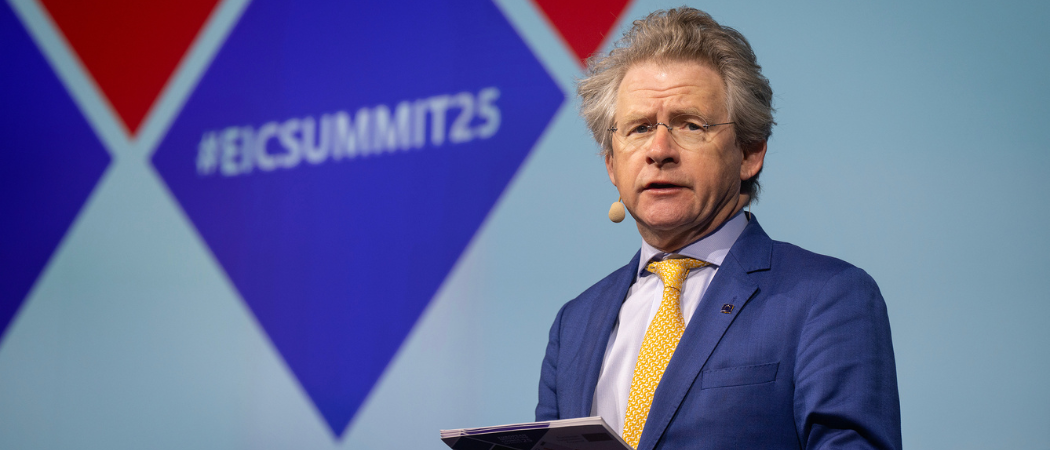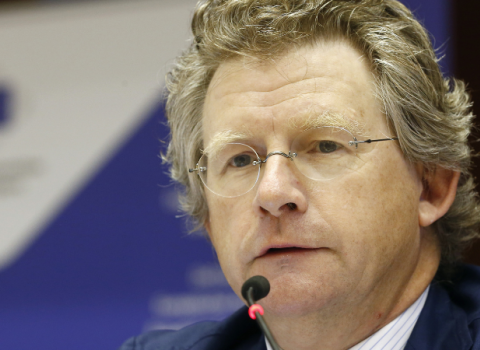More governments should follow Lithuania and transfer regional funds for “direct management” by the European Innovation Council

EIC board president Michiel Scheffer. Photo credits: European Commission
EU member states and regions should do more to align the funding they control with start-up support programmes operated by the European Innovation Council (EIC), the EIC board said in a statement released on May 12.
In particular, it wants to see more governments follow the example of Lithuania and transfer parts of their allocation from the European Regional Development Fund (ERDF) to the EIC “for direct management.” EU member states could also leverage money from the Recovery and Resilience Facility and national programmes to support promising start-ups.
In an interview with Science|Business last month, EIC board president Michiel Scheffer said member states should do a better job of “organising their deep-tech communities,” beyond what the EIC can do in terms of funding and support.
“At the end of Horizon Europe, the EIC will have funded about 1,000 companies, but that’s only the icing on the cake, as there are about 160,000 deep-tech start-ups in Europe,” said Scheffer. “So there's a lot of work in terms of improving the connection between regional, national and European funding.”
In its statement, the EIC board admits that “due to limited budgets, many high-quality proposals—particularly in strategic areas like digital, life sciences and clean technologies—remain unfunded.” Implementing some existing measures would ensure that promising start-ups get a chance to test their ideas in their regions and countries.
Transfers of ERDF money to EIC grants have been successfully piloted in Lithuania, while Bulgaria, Poland, Portugal, Slovakia and Spain have provided direct funding to recipients of the EIC Seal of Excellence, an evaluation document that certifies the quality of projects submitted by start-ups. Last but not least, the EIC Plug-In Scheme allows national programmes to nominate top-performing companies for fast-tracked access to the EIC Accelerator.
Scheffer said not all countries are performing equally in terms of improving links between regional, national and European funding. “Some countries do it very well, others are progressing – Bulgaria, for example, has improved dramatically, but unfortunately, some are not progressing,” he said.
Access to public and private capital is not always easy, especially in the so-called Widening countries, most of which joined the EU after 2004. Innovation capacity is also limited because of low R&D funding levels, poorly funded universities and the brain drain. That gap is also visible in EIC competitions, and countries have a lot of work to do to help their start-up ecosystems integrate in broader European networks.
“Within the Widening countries, two countries that are doing very well, Portugal and Estonia, are performing above average in the EIC,” said Scheffer. And there are other countries, such as Bulgaria, that are catching up, mainly because of the political will of the government. “So, there has been a political choice,” said Scheffer, to do more and use more available funding schemes and instruments.
The choices made by governments in terms of investment strategies are also important. Scheffer cited Lithuania once again, this time as an example of what not to do. Its capital, Vilnius, announced the ambition of becoming the European capital of health and artificial intelligence.” a goal shared with 40 other European cities, some with much longer track records. “That’s something that only three or four cities have,” said Scheffer.
A better example is Trenčín in Slovakia, an important research centre in glass technology. “Success breeds success, so it's also helpful to start with niches which are slightly less competitive and where you have an edge,” said Scheffer.





 A unique international forum for public research organisations and companies to connect their external engagement with strategic interests around their R&D system.
A unique international forum for public research organisations and companies to connect their external engagement with strategic interests around their R&D system.